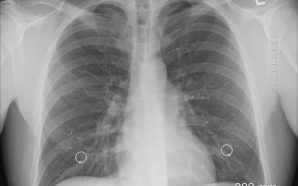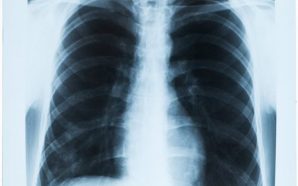-
Group B Strep (GBS) is the most common cause of infection in newborn babies. It is a normally symptom-free bacterium that is present in up to 40% of all women. The Group B Strep is harbored in the vaginal and rectal tracts. When this bacterium goes undetected and untreated,...
-
Pneumonia signs and symptoms differ in severity and can be mild to severe dependent on a number of factors such as age, overall health, and infection type. Symptoms that are mild aren’t unlike the symptoms of the common cold or the flu but are more persistent. The issue with...
-
Pneumonia may have a variety of causes. The viruses and bacteria we breathe into our lungs are, however, the most common culprits. Our bodies are usually well-equipped in circumventing bacterial or viral infection in the lungs, but some pathogens can take their toll on the immune system, even if you...
-
Pneumonia can be a severe and potentially life-threatening condition. The cause of pneumonia is usually a bacterial or viral infection of the lungs, both of which can be quite dangerous. If you suspect your child is exhibiting symptoms of pneumonia, it is essential to seek medical attention as soon...
-
Pneumonia refers to a severe infection of the lungs, which can be a relatively dangerous condition, either affecting one or both of the lungs. Pneumonia can arise due to inhalation of particles of harmful substances or pathogens coming from an infected individual’s cough or sneeze, especially in an enclosed...
-
Pneumonia is an infection of the lungs, resulting in lung inflammation. The infection is usually bacterial or viral. The severity of the condition varies widely but generally, symptoms include coughing up mucus, a fever, chest pain, weakness, shortness of breath, nausea and diarrhea. These symptoms are generally more severe...
-
‘Pneumococcal’ is a broad term. Generally, it is characterized by any condition caused by the pneumococcus bacteria. This bacteria can cause a host of infections, including ear infections, sinus infections, meningitis, and bacteremia. One of the most common pneumococcal conditions is pneumonia – infection of the lungs. Pneumococcal pneumonia...
-
The pneumonia shot (injection) is one of the leading methods of preventing the spread of pneumonia. It is also known as the pneumonia vaccine or pneumococcal vaccination, and it comes in two types. Pneumococcal Conjugate Vaccine (PCV13 / 13) PCV13 protects against 13 different types of pneumonia bacteria. PCV13...
-
Streptococcus pneumoniae is a type of bacteria responsible for causing pneumococcal disease. Infections by this type of bacteria result in a number of illnesses including pneumonia, meningitis, ear and sinus infections and bacteremia. The bacteria is typically spread via close contact with an infected person as well as through...
-
Pneumonia is a serious health problem that is an infection or inflammation in the lungs. It can involve one lung or affect both lungs. Pneumonia can result from breathing in droplets of infective agents or germs from an infected person’s sneeze or cough, particularly in a closed space such...
-
Pneumonia is a serious medical condition. It is often caused by a bacterial infection of the lungs after the onset of a virus. Other kinds of pneumonia are not caused by bacteria but by viral infection, although they are equally serious. Medical professionals should be consulted immediately after symptoms...
-
What Does Pneumonia Look Like? The signs and symptoms of pneumonia vary from mild to severe depending on your age, your health, and the type of germ that is causing the infection. Mild symptoms and signs are often similar to a cold or flu, but may last longer. Newborns...
-
What is Pneumonia? Pneumonia is a general term that means “inflammation of the lungs”. Pneumonia can infect one or both of the lungs. Inflammation occurs in the affected areas to fight off the infection due to breathing in bacteria, a virus, a fungus, or any other foreign matter that...
-
Chest colds, also known as acute bronchitis, are quite common in the winter months, when the population heads indoors to get out of the low temperatures—the viruses and bacteria responsible for such infections thrive in areas of close contact. The specific type of infection plays a large role in...

















